Interview: Douglas Stuart - Scottish debut novelist makes The Booker longlist with Shuggie Bain
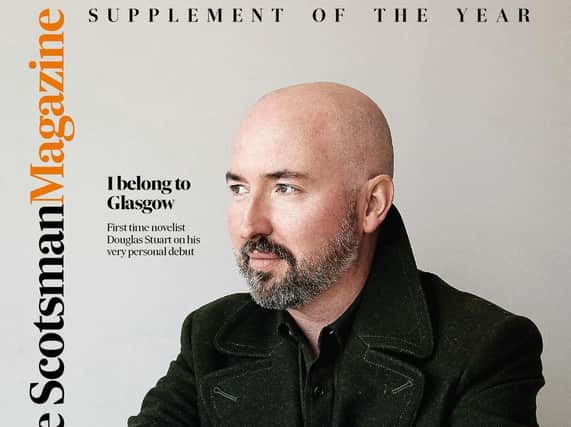

Douglas Stuart has lived in New York for years, but his debut novel, Shuggie Bain, more than a decade in the writing, plunges the reader into the Glasgow of his childhood. The book, already longlisted for the Booker Prize, follows the struggles of a boy trying to keep his mother away from alcohol. The author talks to Janet Christie about growing up in the city in the 1980s and how drawing on his experiences helped him come to terms with his past.
How far will you go to save the person you love the most before you have to save yourself?” says Douglas Stuart.
“Something I’ve learnt from my own journey is that kids of people who suffer from addiction often feel it’s your thing that you can fix – if you’re smarter, quieter, brighter, neater, cheerier, then perhaps your parent won’t turn to addiction or drink that day – and the truth is, I now know as an adult, it only lies within the addict to fix.
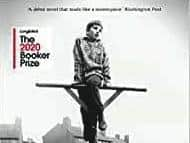

“All you ever want to do is fix the person you love, and you can’t. And that’s a guilt you carry with you throughout your life.”
Shuggie Bain
Douglas Stuart should have been discussing his debut novel Shuggie Bain standing in a bookshop in Sauchiehall Street in his native Glasgow, or appearing in person at the Edinburgh International Book Festival right now. Instead he’s sitting on the porch of a white clapboard house in New York State’s Catskill Mountains Zooming with The Scotsman as he escapes the city for a holiday with his husband Michael and prepares for online appearances at the festival.
Written over ten years on his subway commute to his fashion industry job, early in the morning, late at night and at weekends, Shuggie Bain has catapulted the shy 44-year-old into the headlines by being in the running for the Booker Prize.
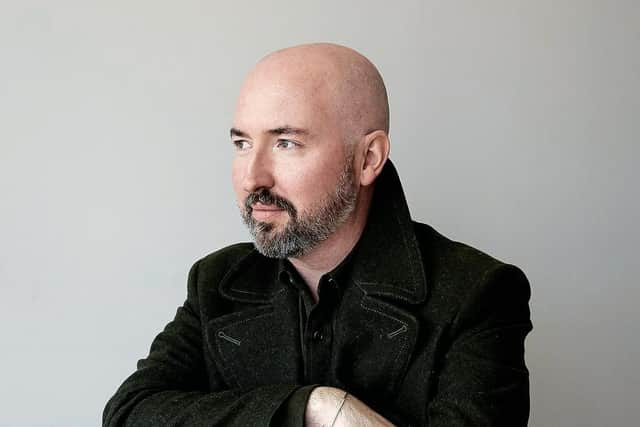

One of the 13 titles on the longlist, it’s the story of a boy in 1980/9s Glasgow growing up the gay son of Agnes, a clever, funny, proud, beautiful alcoholic, and his refusal to give up on her. It’s about poverty and inequality, patriarchy, homophobia, and how women and children suffer in tough times. Think Trainspotting, but with the voices of the women and children whose lives are destroyed by addiction and poverty too.
“I grew up knowing that when men struggle it’s women and children that suffer. Being the son of a single mother meant my entire universe was women, other single mums and aunties. And being the son of an alcoholic meant that the parent/child relationship was inverted and you’re given a real glimpse behind the curtain of things that little boys should never see. I just wanted to write about it because most of the books I admire, including Trainspotting, deal with men who are quite nihilistic, racing towards their own destruction. They’re quite gallus about it, embracing their hard-drinking or hard drugging. But when mothers struggle, there’s such a stigma and we’re so much harder on them which compounds their suffering and the suffering of their children because it isolates them further and stops them being able to get the help they deserve.
“My mother was a wonderful human being, funny, generous to a fault, beautiful, but she was unwell. It was ‘you’re a mother, think of your children, how can you let yourself get into that state?’, and that is so bad for the women and the children that are suffering with addiction.”
Shuggie Bain is grim in parts, but funny too.
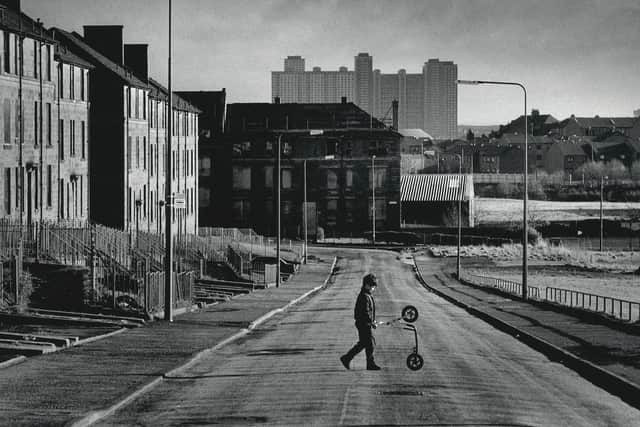

As Stuart says, “How can something be so funny and so desperately sad at the same time? That’s life. How can people be so loving and hopeful and then also totally hopeless at the same time, so sensitive yet so violent? And when you are poor these things sit cheek by jowl, you don’t get to take a week off or therapy after somebody dies, you don’t get to decide if you’ve got PTSD, you get to keep going and sometimes the only thing you have is humour.”
Glasgow childhood
Stuart was born in Sighthill, grew up in the East End of Glasgow, and went to school in Pollok. When he was 15 his mother died of her addiction and without a father he’d never known, the teenager lived alone in a bedsit, catching up on his education. Studying at Heriot-Watt School of Textiles and Design in Galashiels – which he describes as ‘bliss’ after being bullied every day at school from the age of six – led to him being headhunted by Calvin Klein and relocating to New York where he still lives.
Writing in spare moments
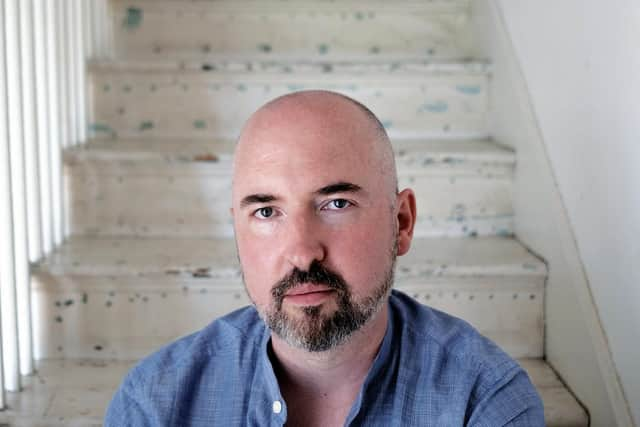

Written in his spare time around his full time job in the fashion industry – “I ruined so many family holidays” – Stuart never had his eyes on the prize. For him it was the writing that was the thing.
“I found it incredibly healing. It allowed me to look at a lot of things from my upbringing with some sort of clarity. Also being in New York I could look back with the focus that distance brings… and a little bit of love and a little bit of regret.”
For Stuart writing was a pleasure, something he felt compelled to do for his own satisfaction, without any thought of publishing, never mind the Booker. For this reason the book has an honesty and authenticity that chimes with readers who have never heard of putting 50p pieces in a meter on the TV, or know where Pollok is, as Stuart skewers the specifics of Shuggie Bain’s experience.
“I wrote it for myself, and didn’t know if I would ever show it to someone, so I wrote it in truth. I wrote the dialect and prose as I wanted it, in Glaswegian and broad Scots and people have been able to access it and that’s been amazing, especially in America.
Universal themes
“What’s been both heartening and disheartening is how universal the themes of the book are,” he says. “Because so many women and children are suffering with addiction. In the States too there are so many communities where industry has left and an opioid and meths crisis is sweeping from Philadelphia up to Detroit through the Rust Belt and so many families are struggling. I’ve had messages from Minnesota to Detroit to Philly, saying that’s what my childhood was like. Today I got one from North Carolina, and it’s amazing, the power of a little Scottish book like that.”
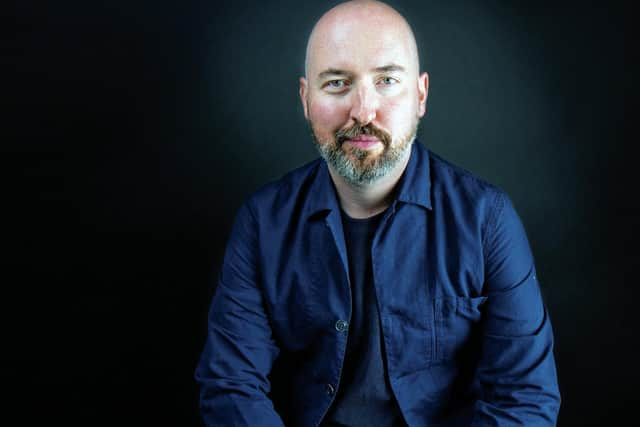

Although Shuggie Bain is a portrait of the Bain family, Stuart casts his sweeping gaze over the suffering and struggles of many in his community.
“There were men and women doing their very best on either side of me, but they could never tell anyone, and I didn’t ever find their stories recorded so I wanted to sit down and do that. Because what ordinary people achieve in the most difficult circumstances are sometimes the greatest things. And the truth is you still need to celebrate those stories, talk about it, because a lot of people just didn’t know.”
More challenging than writing the book, for the self-confessed shy boy from Glasgow is the publicity, perhaps a legacy of being bullied at school for being ‘no right’, ie gay.
In the public gaze
“Attention was not something I was looking for. It was enough to write the book. I’m naturally quite introverted and for me, to be a writer is about writing. I just wanted to write the best book I could.”
With the publication of the book, for Stuart, Shuggie has come home, even though he’s been unable to join it in person, thanks to Covid. However, he’s determined to take the positives out of lockdown, rather than focus on loss.
Launching a book in lockdown
“I hope that people will read the story of Agnes and Shuggie and come away with more empathy and understanding. There are a lot of people living on the breadline or below and turning to food banks, and I’m just hoping Shuggie can start a vital conversation around that.”
One of the positives of shifting the book festival events out there online has been to make them free and therefore more accessible and inclusive than ever before. Stuart has already been in conversation with authors Paul Mendez and Maaza Mengiste as part of the New York Times Book Review and on Wednesday will be in conversation with fellow Scottish writer Damian Barr about the making and writing of Shuggie Bain.
So what’s it like to have your first book up for the Booker?
“It’s incredible. I grew up in a house without books. I come from a long line of tradesmen; slaters, joiners, grain haulers and ship-builders, so writing was never seen as something I should do. I always did it in private for myself.”
With such a strong voice of authenticity to Shuggie Bain it’s inevitable that readers wonder exactly how much of it is autobiographical.
“It’s not a memoir,” says Stuart, “and it’s not strictly autobiographical, but I definitely grew up incredibly poor, raised on benefits, and I am the queer son of a single mother who lost her own battle with alcoholism when I was still in high school.
“I write about poverty and addiction and homophobia and suffering under the patriarchy from the inside because I understand what it feels like. But I wouldn’t want anyone to read the individual scenes in the book and think they were my life. Part of that is keeping my trauma for myself, and the book as a work of fiction. But certainly I come from what I write about.
“What I always knew growing up in Glasgow, through Alateen and Al-Anon, was that I was part of a community, this was never my story alone. Nor is it Shuggie’s story alone, it’s something that so many kids are suffering with, and after looking so closely at the Bain family I had to zoom out and say but hey, wait a minute, there are so many others.”
Mother Glasgow
Just as his character Shuggie Bain’s relationship with his mother and his refusal to give up on her is the beating heart of the book, so Stuart’s relationship with his own mother is central to how his life turned out. She’s the reason the boy who grew up in a house without books became a writer on the Booker longlist and the reason a boy whose clothes all came from a catalogue went on to a career in fashion.
“My mother is at the root of both my fashion and writing careers. Because one of the things about growing up as the kid of an alcoholic is managing the unpredictability of it. You don’t want the person to hurt themselves or go out into the street and embarrass themselves because it makes the next day much harder for them and they turn to their substance. So a trick I learned as a kid was to sit with my mother and pretend I was writing her autobiography, take down the stories that she told me in a school book and it was a good way to hold her attention, keep her in her chair and stop her from coming to any harm.
“And I’m head of design, but my speciality is knitwear and knitting was one of the very few things my mother taught me. I was a kid who was given a square to knit on a rainy day to keep me quiet. It’s funny that it’s blossomed into an entire career. I really owe all that to my mum.”
He pauses.
“It’s a shame I can’t tell her.
“Thirty years after her death I still wish she was here, and I still regret that I couldn’t stop it. You’re always thinking what else could you have done, but you’re a wee boy; there’s not much you can do.”
Zooming in and out
Glasgow is a character in the book, as much as Dublin is to James Joyce or Edinburgh to Irvine Welsh. As much as Stuart zooms in on the details of Shuggie’s life he zooms out again with a gaze that sweeps the city and its citizens. We look down on it with Shuggie from the top of the Sighthill flats, or watch it from behind the windscreens of its taxi drivers.
“You are where you were raised and how you were brought up,” says Stuart. “Even though I was swept away and ended up in New York, I never meant to leave Glasgow. I was just blown away from it. I’ve lived in New York for the best part of 20 years and every year I come home maybe three times for a couple of weeks; I’m never far away.
“In a way Shuggie is a love story to the city. It’s not a blind, always flattering love story, but it’s the truth”
“I identify as Scottish, as a Glaswegian and working class. This is the city that formed me and it’s the city I love. In a way Shuggie is a love story to the city. It’s not a blind, always flattering love story, but it’s the truth. Anyone that sits down for ten years to write a book about a city, it has to come from a place of love.”
With Shuggie Bain out in the world Stuart has been able to turn his attention back to his second and now third books.
“I’m putting the finishing touches on my second novel, which is about to make its way to my editor’s desk so I’m excited about that. It’s a love story, again set in Glasgow in the 1990s, called Loch Awe. It’s about two boys that are falling in love but are separated by sectarian and territorial gang lines. They’re falling in love across the Catholic/Protestant divide.”
The third book, a work in progress, is the product of three months travelling in the Outer Hebrides last year, amassing 80 hours of audio recordings and interviews with the islanders.
“It was the trip of a lifetime. When I got on the islands I knew only two people but as soon as I met somebody and said ‘I’d love to know more about crofting, or sheep or what the ocean means to young kids, they’d be like ‘away to the other side of the village and talk to Christine with the red door’. Being a city boy and a New Yorker now I would say ‘well can you call or email her and make an appointment’, and they were like ‘away and chap the door!’ Sure enough, you just go and chap the door – if you did that in New York you’d be in trouble. But in the Outer Hebrides I was met with such generosity and warmth and I don’t think I came away from any house without a bellyful of pancakes.”
Long a champion of Scottish textiles, whether lambswool, Harris Tweed or cashmere spun out of Kinross in his fashion career, he had always wanted to see how tweed was made in sheds on the islands.
“When tweed really fell out of vogue in the 1980s the Hebrides were battered by unemployment but we never ever talk about that because we’re so fixated on Glasgow and the Central Belt. Now to see the resurgence of people wanting to support the artisanal crafts, or products with a story, that is amazing. Seeing the home weavers, suddenly I saw my textiles and my writing come together and I felt like I was at home.”
With the Booker Prize shortlist of six books announced in September and the winner in November, Stuart is delighted just by being nominated, let alone writing the book.
“I have already won,” he agrees. “I’ve come much further than a boy from Pollok should have.”
Well, why not a boy from Pollok?
“OK, I’ve come much further than I thought I could have.”
Shuggie Bain by Douglas Stuart is published by Picador, Pan Macmillan at £14.99. Out now.
Douglas Stuart: The Making of Shuggie Bain is on Wednesday 26 August, 5:30pm-6:30pm, The New York Times Main Theatre Online, free, Edinburgh International Book Festival Online, www.edbookfest.co.uk
xxxxxxxxxxxxxxxxxxxx
A message from the Editor:
Thank you for reading this story on our website. While I have your attention, I also have an important request to make of you.
With the coronavirus lockdown having a major impact on many of our advertisers - and consequently the revenue we receive - we are more reliant than ever on you taking out a digital subscription.
Subscribe to scotsman.com and enjoy unlimited access to Scottish news and information online and on our app. With a digital subscription, you can read more than 5 articles, see fewer ads, enjoy faster load times, and get access to exclusive newsletters and content. Visit https://www.scotsman.com/subscriptions now to sign up.
Our journalism costs money and we rely on advertising, print and digital revenues to help to support them. By supporting us, we are able to support you in providing trusted, fact-checked content for this website.
Joy Yates
Editorial Director